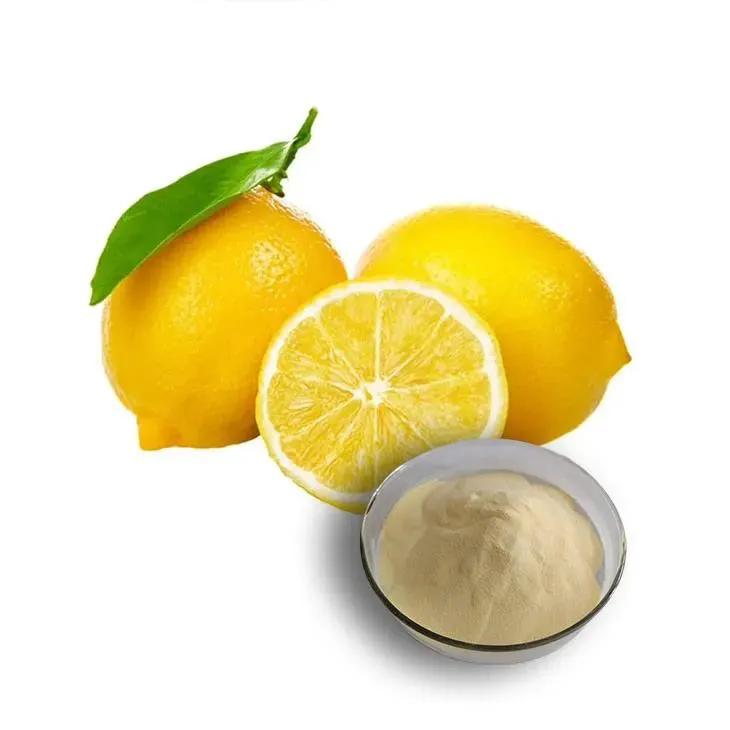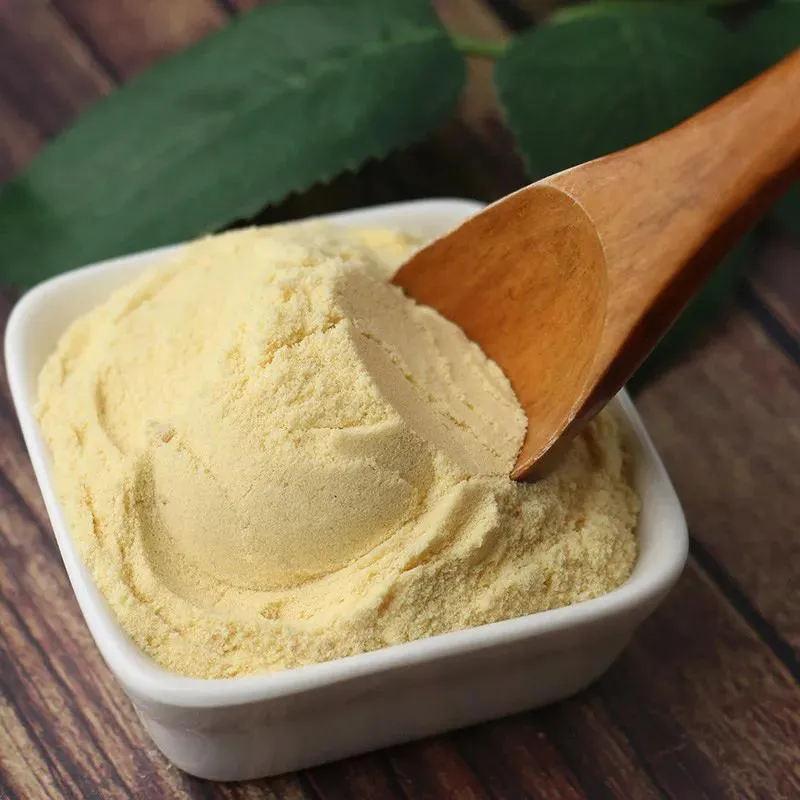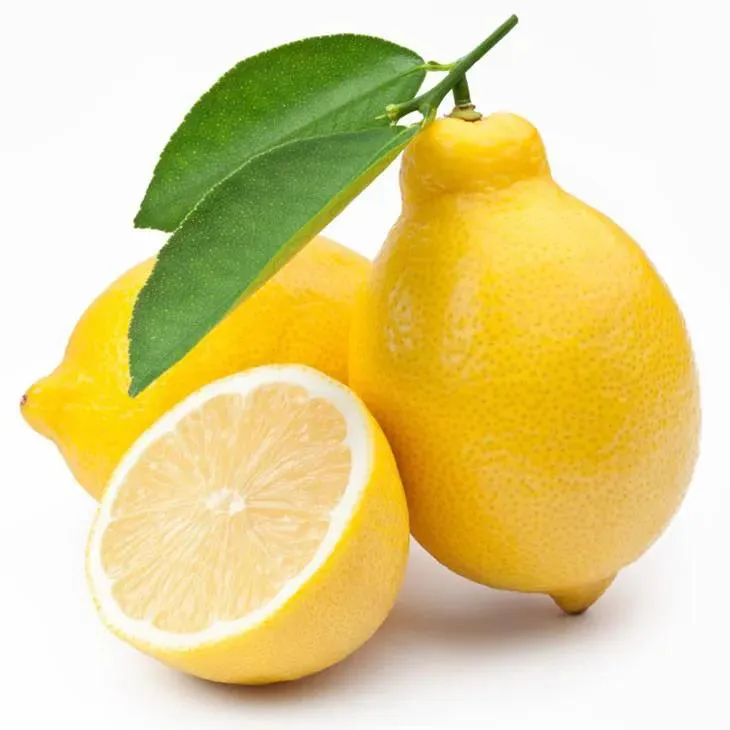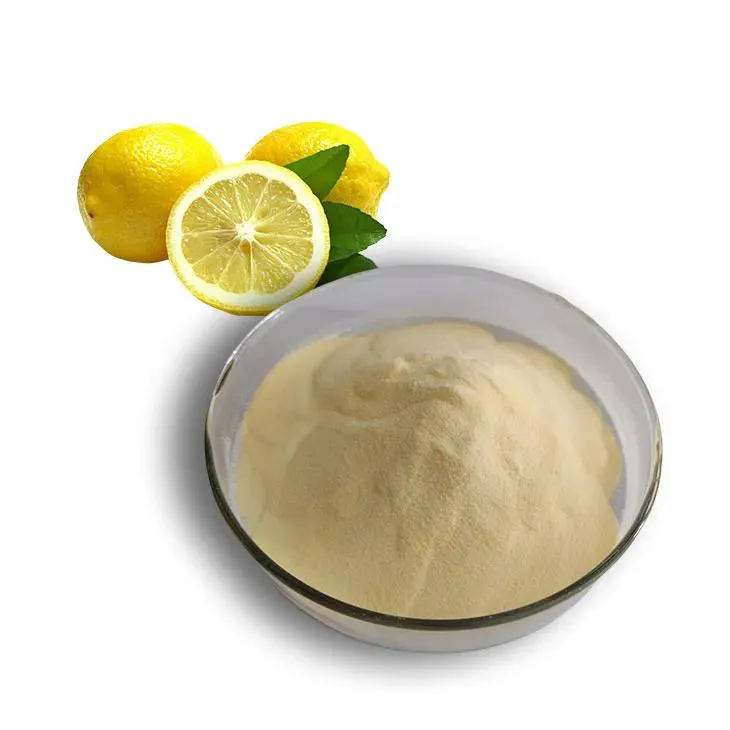- 0086-571-85302990
- sales@greenskybio.com
Expert Tips for Effective Wholesale Purchase of Lemon Juice Powder.
2024-12-10

1. Introduction
Lemon Juice Powder has become a popular ingredient in various industries, including food and beverage, cosmetics, and pharmaceuticals. For businesses looking to purchase Lemon Juice Powder in wholesale, it is crucial to make informed decisions to ensure product quality, cost - effectiveness, and a reliable supply chain. This article will provide expert tips on how to achieve efficient wholesale procurement of Lemon Juice Powder.

2. Understanding Product Quality
2.1. Ingredient Source
The quality of lemon juice powder is highly dependent on the source of its ingredients. High - quality lemon juice powder is typically made from fresh, ripe lemons. Suppliers should be able to provide information about the origin of the lemons used. For example, lemons sourced from regions known for their high - quality citrus fruits, such as the Mediterranean, are likely to produce better - quality juice powder. Additionally, organic lemons are preferred in some applications, as they are free from pesticides and other chemicals.
2.2. Production Process
The production process also plays a significant role in determining the quality of lemon juice powder. The extraction method used to obtain the juice from the lemons should be carefully considered. Cold - pressed extraction is often regarded as a superior method, as it helps to preserve the natural flavors, vitamins, and nutrients in the lemon juice. After extraction, the juice is then dehydrated to form powder. The drying process should be carried out at appropriate temperatures to avoid over - heating, which can damage the delicate components of the juice. Quality control measures during production, such as regular testing for purity, acidity, and microbiological safety, are essential.
2.3. Packaging and Shelf - Life
Proper packaging is crucial for maintaining the quality of lemon juice powder. The powder should be packaged in airtight, moisture - resistant containers to prevent spoilage and degradation. Packaging materials such as laminated foil pouches or high - density polyethylene (HDPE) jars are commonly used. When evaluating suppliers, inquire about their packaging practices. Regarding shelf - life, a longer shelf - life is generally more desirable for wholesale purchases. However, it is important to ensure that the extended shelf - life is achieved through proper preservation methods rather than the use of excessive preservatives.

3. Cost - Effectiveness Considerations
3.1. Pricing Structure
When considering the cost - effectiveness of wholesale lemon juice powder purchases, it is important to understand the pricing structure offered by suppliers. Suppliers may offer different price tiers based on the quantity ordered. Bulk discounts are common in the wholesale market. For example, ordering a larger quantity, such as a pallet - load, may result in a significant per - unit price reduction. However, it is essential to calculate the total cost, including any additional fees such as shipping, handling, and taxes, to accurately compare different offers. Some suppliers may offer a lower per - unit price but have higher hidden costs.
3.2. Long - Term Cost Savings
Looking beyond the immediate price, consider long - term cost savings. A slightly more expensive lemon juice powder may prove to be more cost - effective in the long run if it has a higher quality and longer shelf - life. This can reduce the frequency of re - ordering and potential losses due to spoilage. Additionally, choosing a supplier with a reliable delivery schedule can help avoid costly production disruptions caused by stock - outs. Investing in a relationship with a consistent supplier can also lead to potential cost - saving opportunities in the future, such as preferential pricing or customized packaging.
3.3. Cost - Quality Balance
Finding the right balance between cost and quality is key. While it may be tempting to opt for the cheapest option available, this may not always be the best choice. A lower - cost lemon juice powder may have inferior quality, which can affect the end - product's taste, nutritional value, or performance. Conduct taste tests and quality evaluations on samples from different suppliers to determine the optimal cost - quality ratio for your specific needs.

4. Identifying Reliable Suppliers
4.1. Reputation and Experience
Reputation is a crucial factor when choosing a supplier. Look for suppliers with a long - standing track record in the industry. A supplier with years of experience is more likely to have established reliable sourcing, production, and quality control processes. Check online reviews and testimonials from other customers. Positive feedback regarding product quality, on - time delivery, and customer service is a good indication of a reliable supplier. Additionally, industry awards or certifications can also serve as evidence of a supplier's credibility.
4.2. Production Capacity and Scalability
Ensure that the supplier has sufficient production capacity to meet your wholesale needs. A supplier with limited production capabilities may not be able to fulfill large - volume orders in a timely manner. Moreover, consider the supplier's scalability. As your business grows, you may need to increase your order quantities. A supplier that can easily scale up production without sacrificing quality is highly desirable. Inquire about their production facilities, equipment, and workforce to assess their ability to handle increased demand.
4.3. Certification and Compliance
For food - grade lemon juice powder, compliance with relevant food safety regulations is non - negotiable. Suppliers should hold appropriate certifications such as Hazard Analysis and Critical Control Points (HACCP), Good Manufacturing Practice (GMP), and ISO 22000. These certifications ensure that the production process meets strict safety and quality standards. Additionally, if your business operates in specific markets or industries, such as organic or kosher products, the supplier should also be compliant with the relevant standards. Verify the authenticity of these certifications by checking with the issuing authorities.
4.4. Communication and Customer Service
Good communication and customer service are essential aspects of a reliable supplier relationship. A responsive supplier who can answer your inquiries promptly, provide product information, and address any concerns is invaluable. During the procurement process, evaluate how quickly and effectively the supplier communicates. Are they willing to provide samples? Do they offer after - sales support? A supplier that values customer satisfaction is more likely to be a reliable long - term partner.

5. Sampling and Testing
5.1. Importance of Sampling
Before making a wholesale purchase, it is essential to obtain samples of the lemon juice powder from potential suppliers. Sampling allows you to directly assess the product's quality, including its taste, aroma, and texture. It also provides an opportunity to test the powder for its suitability in your intended applications. For example, if you are using the lemon juice powder in a beverage formulation, you can test how it mixes and affects the overall flavor profile of the drink.
5.2. Testing Parameters
When testing the samples, there are several key parameters to consider. Firstly, test for nutritional content, such as vitamin C levels, which are important for products where nutritional claims are made. Secondly, check the acidity level, as it can impact the taste and stability of the end - product. Microbiological testing for the presence of harmful bacteria, yeast, and mold is also necessary to ensure food safety. Additionally, physical characteristics like solubility and particle size may be relevant depending on your application.
5.3. Comparing Samples
Once you have obtained and tested samples from multiple suppliers, compare the results. Look for differences in quality, performance, and cost - effectiveness. Consider which supplier's product best meets your requirements in terms of all these aspects. Keep in mind that while one supplier may excel in a particular area, another may offer a more balanced overall package.
6. Logistics and Delivery
6.1. Shipping Options
When arranging for the wholesale purchase of lemon juice powder, consider the available shipping options. Suppliers may offer different shipping methods such as air freight, sea freight, or ground transportation. Each method has its own advantages and disadvantages in terms of cost, speed, and volume capacity. Air freight is faster but more expensive, while sea freight is more cost - effective for large volumes but takes longer. Ground transportation may be suitable for domestic shipments or shorter distances. Evaluate your delivery requirements, including urgency and cost constraints, to select the most appropriate shipping option.
6.2. Packaging for Transportation
Ensure that the lemon juice powder is packaged appropriately for transportation. The packaging should be able to withstand the rigors of shipping, including vibrations, temperature changes, and potential impacts. Adequate cushioning and protection should be provided to prevent damage to the product. For international shipments, also consider compliance with international shipping regulations regarding packaging materials and labeling.
6.3. Delivery Time and Reliability
Timely delivery is crucial for maintaining your business operations. Inquire about the supplier's estimated delivery time and their track record for on - time delivery. A reliable supplier should be able to provide a consistent delivery schedule. Delays in delivery can lead to production stoppages or stock - outs, which can be costly for your business. Consider including delivery time and reliability as a key factor in your supplier selection criteria.
7. Conclusion
Effective wholesale purchase of lemon juice powder requires careful consideration of multiple factors. By understanding product quality, cost - effectiveness, reliable suppliers, sampling and testing, and logistics, businesses can make informed decisions that result in high - quality products, cost savings, and a smooth supply chain. Taking the time to research and evaluate each aspect will pay off in the long run, ensuring the success of your lemon juice powder procurement and ultimately, the products in which it is used.
FAQ:
What are the main quality indicators to consider when purchasing lemon juice powder wholesale?
When purchasing lemon juice powder wholesale, several quality indicators should be considered. Firstly, the purity of the powder is crucial. It should have a high concentration of lemon juice solids and a minimal amount of additives or fillers. Secondly, the color can be an indicator of quality; a natural, light - yellow color is often a sign of good - quality powder. The flavor should be a true representation of fresh lemon juice, with a tart and citrusy aroma. Additionally, the solubility of the powder in water or other solvents is important for its usability in various applications. Microbiological safety is also a key factor, so it should be free from harmful bacteria, molds, and yeasts.
How can one ensure cost - effectiveness in wholesale purchase of lemon juice powder?
To ensure cost - effectiveness in wholesale purchasing of lemon juice powder, it is essential to compare prices from different suppliers. However, price should not be the only factor. Consider the quantity discounts offered by suppliers. Buying in larger quantities usually results in lower per - unit costs. Also, look for suppliers who offer value - added services such as free shipping or storage options. Another aspect is to assess the long - term cost implications. A slightly more expensive product that has a longer shelf life or better quality may be more cost - effective in the long run as it may reduce waste and the need for frequent re - purchases. Additionally, building a long - term relationship with a supplier may lead to better pricing terms over time.
What are the characteristics of reliable suppliers for lemon juice powder?
Reliable suppliers of lemon juice powder typically have several characteristics. They should have a good reputation in the market, which can be verified through customer reviews and industry references. A reliable supplier will have proper certifications such as food safety certifications (e.g., HACCP, ISO 22000) to ensure the quality and safety of their products. They should also have consistent product availability, so that they can meet your wholesale demands without delays or shortages. Transparency in their production processes, including the sourcing of raw materials (in this case, lemons), is another important aspect. Good communication channels with the supplier are also necessary, so that any issues or questions can be addressed promptly.
How to test the quality of lemon juice powder before wholesale purchase?
Before making a wholesale purchase of lemon juice powder, there are several ways to test its quality. One can request samples from the supplier. Once the sample is obtained, a simple taste test can be done to assess the flavor profile, checking for the characteristic tartness and citrusy taste of lemon. For solubility, a small amount of the powder can be dissolved in water and observed for any lumps or incomplete dissolution. Chemical analysis can also be carried out, although this may require more specialized equipment. This can include testing for the acidity level (pH), which should be in the range typical of lemon juice. Additionally, visual inspection of the powder for any signs of contamination, such as discoloration or the presence of foreign particles, is important.
What are the common applications of lemon juice powder in the wholesale market?
In the wholesale market, lemon juice powder has a variety of common applications. It is widely used in the food and beverage industry. For example, it can be used in the production of baked goods like cakes and muffins to add a tangy flavor. In the beverage sector, it is used to make lemon - flavored drinks, both alcoholic and non - alcoholic, such as lemonades and cocktails. It is also used in the manufacturing of confectionery items like candies and gummies. In addition, lemon juice powder can be found in the production of some dairy products like flavored yogurts. Moreover, it has applications in the cosmetic and pharmaceutical industries, for example, in the formulation of skin - care products due to its antioxidant properties and in some medications for its flavor - masking or acidity - adjusting capabilities.
Related literature
- Quality Assessment of Fruit Juice Powders: A Review"
- "Wholesale Procurement Strategies for Food Ingredients"
- "Supplier Selection in the Food Industry: Key Criteria"
- ▶ Hesperidin
- ▶ citrus bioflavonoids
- ▶ plant extract
- ▶ lycopene
- ▶ Diosmin
- ▶ Grape seed extract
- ▶ Sea buckthorn Juice Powder
- ▶ Beetroot powder
- ▶ Hops Extract
- ▶ Artichoke Extract
- ▶ Reishi mushroom extract
- ▶ Astaxanthin
- ▶ Green Tea Extract
- ▶ Curcumin Extract
- ▶ Horse Chestnut Extract
- ▶ Other Problems
- ▶ Boswellia Serrata Extract
- ▶ Resveratrol Extract
- ▶ Marigold Extract
- ▶ Grape Leaf Extract
- ▶ blog3
- ▶ blog4
- ▶ blog5
-
Pure 85% Tomentil Extract.
2024-12-10
-
Yam Extract
2024-12-10
-
Propolis Extract Powder
2024-12-10
-
Senna Leaf Extract
2024-12-10
-
Black Pepper Extract
2024-12-10
-
Genistein
2024-12-10
-
Kidney Bean Extract
2024-12-10
-
Cat Claw Extract
2024-12-10
-
Green coffee bean Extract
2024-12-10
-
Fig Extract
2024-12-10
-
Red Vine Extract
2024-12-10





















